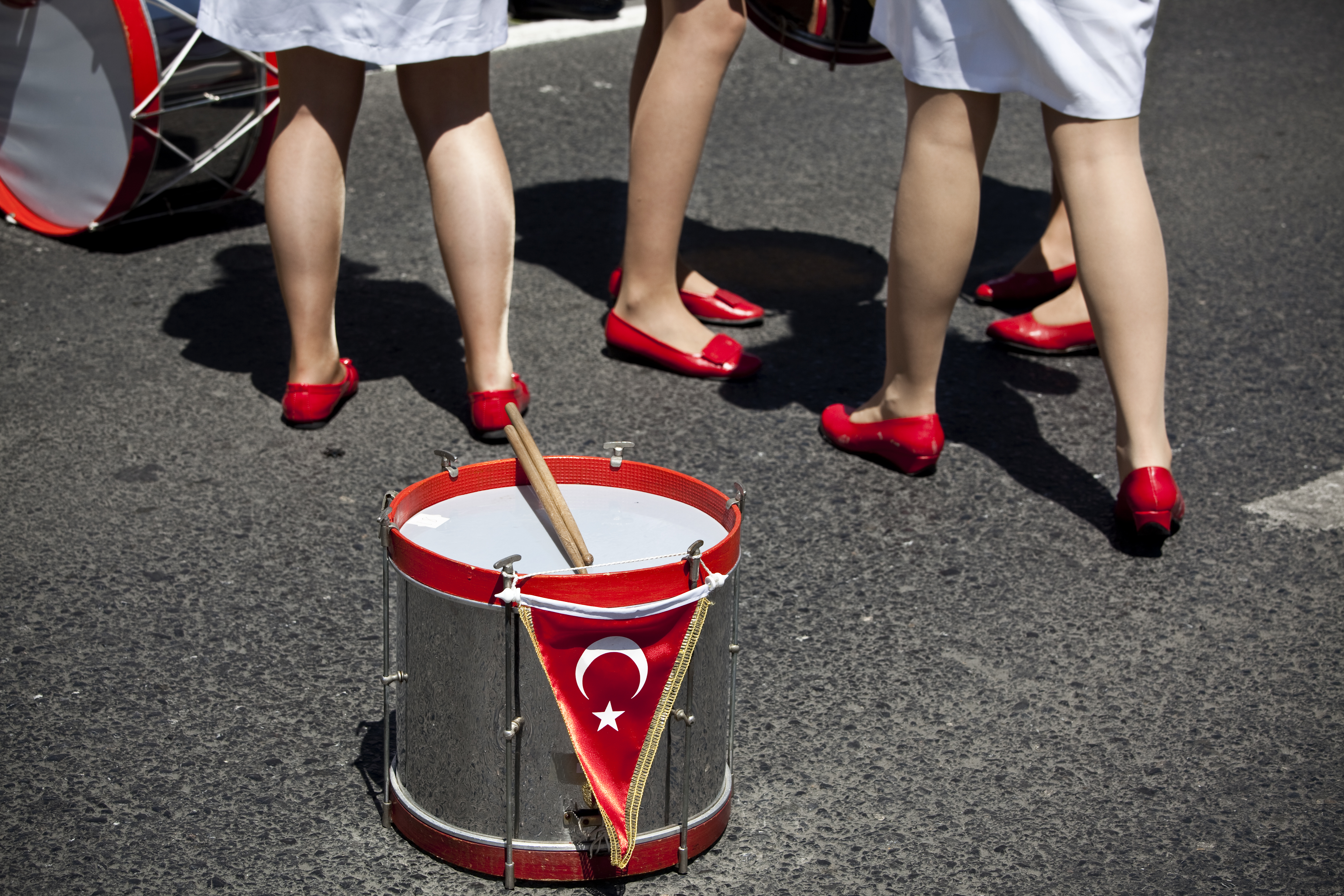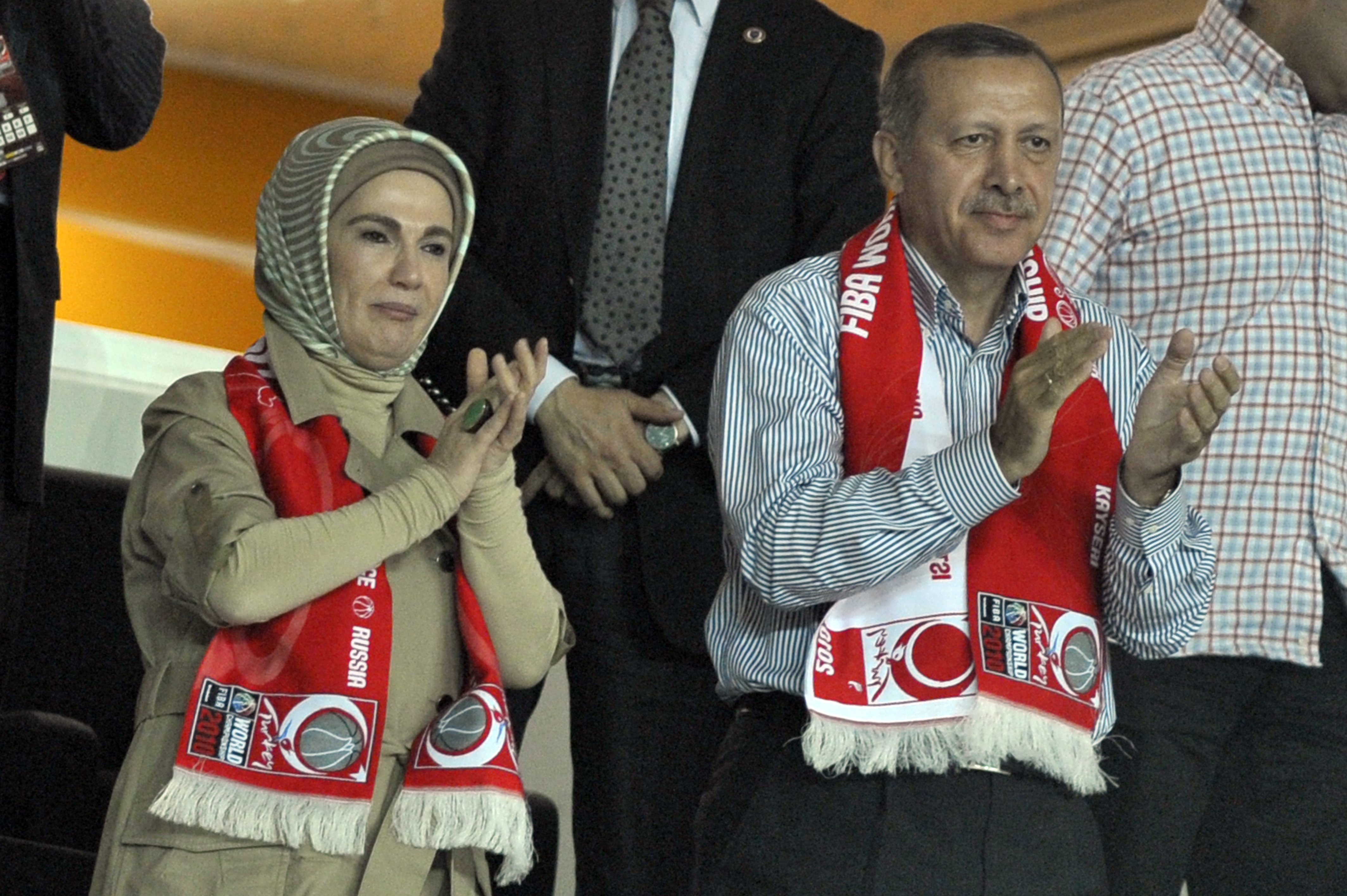Swiss businesses ready to enter Turkey

For Swiss exporters and investors, an emerging market is opening. Foreign trade booster Osec will open its 20th Swiss Business Hub in Istanbul next spring. Also in 2013, the double-taxation accord between Switzerland and Turkey will take effect.
Turkey is Europe’s sixth largest economy, yet it is often considered with ambivalence in Switzerland. On the one hand it is a beautiful and cheap vacation destination, with Istanbul as the cultural highlight of rich western Turkey. On the other it is the eastern Anatolian poorhouse of the country, where the buying power is barely a third of western Turkey’s. Numerous Turkish migrants leave there to work in Switzerland and other countries.
Contrasts like these clash with the sustainable development that has been identified with Turkey since the beginning of the new millennium. Nor does the seemingly enlightened business skyline on the Bosphorus seem to jibe with the ongoing human rights processes on issues such as the Kurdish population.
But in spite of everything, Turkey has been booming for almost a decade, in contrast with large areas of the EU.
Rapid change of image
This boom is still only barely perceptible according to Osec, Switzerland’s state export trade agency. Osec’s Turkey specialist, Alberto Silini, speaks of a “totally erroneous picture of Turkey”. An image correction is needed. Because like the BRIC countries (Brazil, Russia, India and China), Turkey has undergone rapid change in just a few years.
As tourists flocked en masse to Turkey’s southern hotels and resorts, investors were heading in the opposite direction – out of the country. The flight of capital and hyperinflation were invoked in the Swiss headlines until as recently as a decade ago.
For years, however, the country at the edge of Europe has exhibited Europe’s highest growth rate according to figures provided by the Institute for Intercultural Cooperation and Dialog (the Dialog-Institute). At a conference on Turkey that the group organised at Zurich University in October, it was even mentioned that Turkey had survived the financial crisis thanks to the fact that it had little debt.
Syrian crisis, Greek chaos
Turkey reported economic growth of eight per cent in 2010 and 9.2 per cent in 2011–only China and Argentina grew faster. Meanwhile, Turkey’s southern neighbour, Syria, was ravaged by war as its western neighbour, Greece, sank into debt-induced chaos. Turkey reduced its public debt from 75 per cent to 40 per cent of its gross national product, while there is no end in sight for the debt of the EU.
“Back in 2001 Turkey also stood at the edge of bankruptcy – there where Greece is now standing”, said the Turkey correspondent for the Neue Zürcher Zeitung newspaper, Thomas Fuster, at the event in Zürich. With the help of the monetary fund, the country started anew – “that is, it did exactly what the southern Europeans have to do today”.
The country has other advantages: with an average age of 29, its inhabitants are among the youngest in Europe, with the population expected to increase to more than 90 million by 2050; the middle class is growing; the country lies conveniently between Europe, the near East and central Asia; and Turkey has a good reputation and high popularity with the Arab world, according to Fuster, because it sets an example with its combination of modernity, Islam, democracy and growth.
Energy and gender gaps
But the country also has economic weaknesses, such as a high deficit. This affects all of the country’s domestic and foreign economic transactions (trade in goods, services, cash flow, etc.), and represents a decline in assets. As a result, the Turkish economy is dependent on capital inflows from abroad.
Because wages are no longer low, Turkish industry is still on unsteady feet. Even the minimum wage is high, Fuster says, meaning that a large part of the country’s economic activity is informal – as in black market.
Another weakness is the import structure. A large proportion of imports involve energy, such as oil, and oil imports leave little room for savings.
Also, having a large and young workforce isn’t much of an economic advantage when its potential is poorly utilised. This is especially true in the case of women. Only 30 per cent of women in Turkey belong to the workforce; the percentage is twice as high in Switzerland.
Currently, the number of qualified Turkish second-generation EU residents returning to Turkey is greater than the number of Anatolian migrant workers leaving the country. With unemployment officially at around ten per cent, this indicates a certain imbalance between the job market and training. Currently Turkey is looking into a dual vocational training program like the one used in Switzerland.
With such a young population, Turkey has almost 16 million students. Since 2002 the government has been overhauling the outdated education system. But a strong divide between East and West remains.
What Swiss exporters want
According to Emre Pinarli of the Turkish economic development agency, the country wants to invest in 10,000km of high-speed rails and trains and 15,000km of highways. On top of that come harbour projects and centres for healthcare tourism. These are infrastructure projects that Swiss engineering and high-tech firms see gladly.
“The mouths of the Swiss small and medium-sized enterprises are watering over the many potential investment projects in Turkey”, says Osec’s Silini. “Above all in those areas where Swiss firms could play a role.”
Such an expansion in infrastructure would also increase energy demands. In 2009, Switzerland and other countries stopped their export risk insurance for the Ilisu dam on the River Tigris under internal political pressure, causing delays in the project. Today, atomic power plants are on the list of planned Turkish projects.
In 1954, working with Switzerland, Turkey adopted the business model of the Migros grocery store cooperative. Although “Migros Türk” became independent in 1974, it was allowed to continue using the M label and name. It is now the biggest supermarket chain in Turkey.
In 1925, Turkey and Switzerland signed a Friendship Treaty. In 1930 a settlement agreement and a first trade agreement followed.
In 1991, under the auspices of Efta, the two countries signed a free trade agreement which included a reduction in trade barriers.
According to Osec, Swiss SMEs first have to be sensitised to the Turkish market. There are many opportunities for them in smaller cities in the areas of clean technology, the environment and waste management, or in general in the field of healthcare.
Many Turkish projects have been initiated by the World Bank. Because Switzerland is one of the World Bank’s financial backers, it can also bid on public contracts.
With Turkey as a way station, Swiss SMEs also have access to neighbouring markets like the near East, North Africa and central Asia.
On October 31, Zurich-based Barry Callebaut, the world’s largest chocolate producer, announced it was spending SFr15 million on a production facility in Eskişehir, northwestern Turkey, capable of churning out 15,000 tonnes of chocolate a year from mid-2013.
Annual per capita chocolate consumption in Turkey is currently only 2kg a year (compared with around 12kg in Switzerland), but it is increasing by 7% a year.
Switzerland ranks among Turkey’s most important investors, with about SFr3 billion ($3.2 billion) directly invested in the country.
This represents only 0.3 per cent of Switzerland’s foreign investments overall, but according to Osec there is great potential in Turkey for Swiss investors.
The SFr3 billion is spread over around 600 Swiss businesses. These employ a total of 15,000 Turkish workers.
Major Swiss pharmaceutical and chemical companies are already established in Turkey. Swiss watchmakers plan to open a watchmaking school in the country.
GNP (billion $): 822 (2012), 888 (2013), 952 (2014)
GNP per person ($): 10,973, 11,716, 12,412
GNP growth (real, %): 4.0, 5.0, 5.0
Unemployment (%): 10.4, 10.2, 9.9
Tourism revenue (billion $): 26, 29, 31
Trade deficit (billion $): -65.4, -67, -67.1
Current account balance/GNP (%): -8.0, -7.5. -7.0
Source: Turkish Development Ministry
(Translated from German by Jeannie Wurz)

In compliance with the JTI standards
More: SWI swissinfo.ch certified by the Journalism Trust Initiative










You can find an overview of ongoing debates with our journalists here . Please join us!
If you want to start a conversation about a topic raised in this article or want to report factual errors, email us at english@swissinfo.ch.